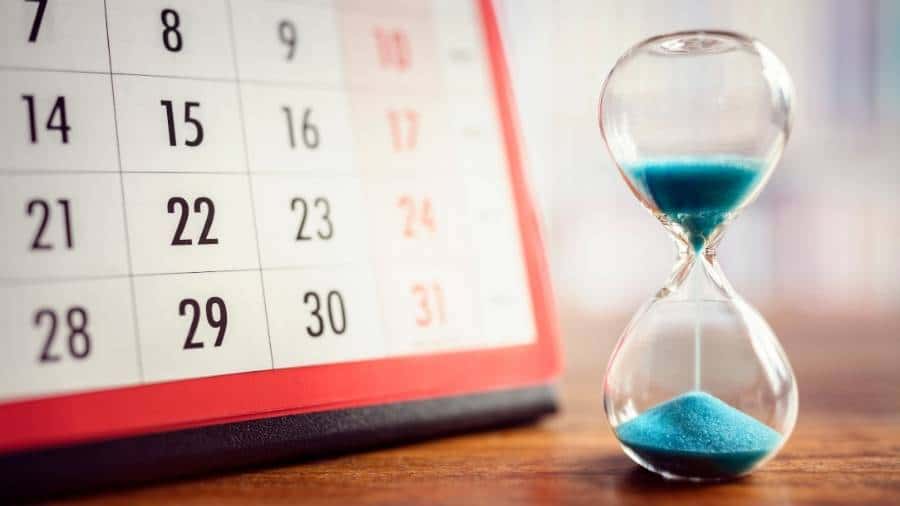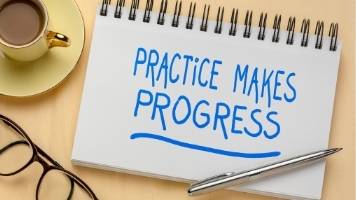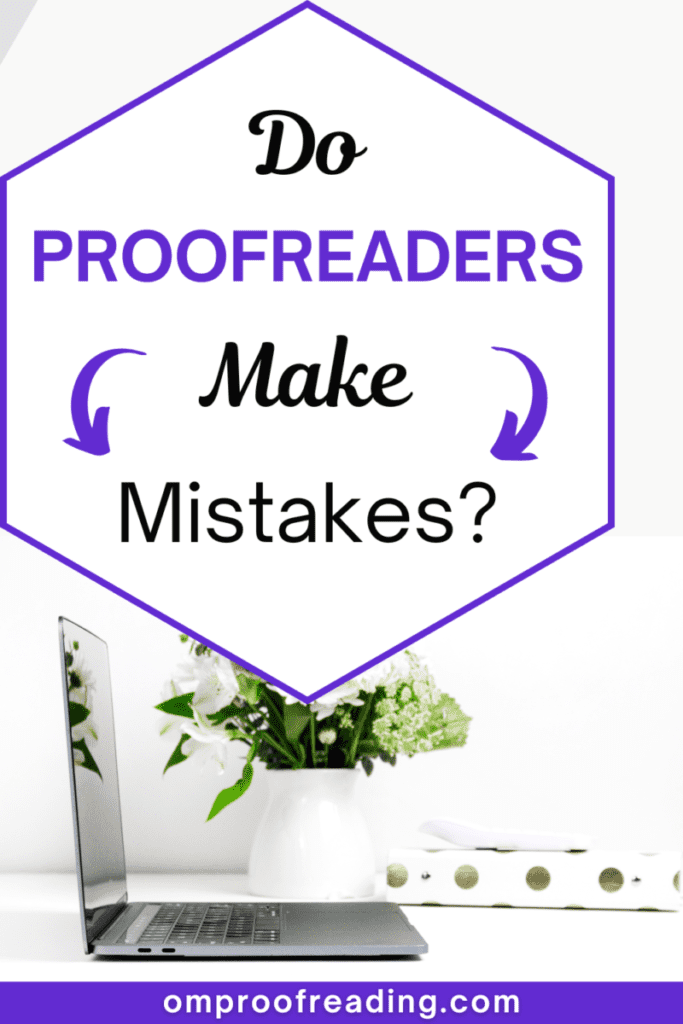This article may contain affiliate links. Please see our affiliate disclaimer in the footer menu for more information. Thank you for your support!

If you want to become a proofreader or are interested in hiring one, you may wonder if proofreaders make mistakes. Do proofreaders eradicate every error their eyes encounter, or do they overlook errors?
Although proofreaders are responsible for eliminating errors, they are still prone to making mistakes. According to science, our brains aren’t wired to pay close attention to details. Furthermore, a lack of time, training, or experience are all reasons why a proofreader may overlook a blunder.
Let’s look at why our brains haven’t evolved to focus on details and a few other reasons why proofreaders make mistakes.
Yes, Even Proofreaders Make Mistakes
I’m a proofreader, and I’m also a perfectionist. And like most people, I don’t like to make mistakes. I especially don’t like to make mistakes because my job involves getting rid of them, not making them.
I put a ton of time and effort into making myself the best proofreader I can be.
I also take time to give every document my full attention, and I work meticulously. But I’m still not perfect; I’m only human. None of my colleagues are perfect either.
So where are those perfect proofreaders? As we know, they’re nowhere to be found.
However, every decent proofreader strives to correct 100 percent of the errors in the documents entrusted to them.
We understand your book or screenplay or website copy means a lot to you because you’ve put so much work into it.
In turn, we owe you our absolute best. We want to make your text as perfect as possible, and we don’t want to miss anything. We even consult our colleagues when we have doubts about how to best correct an error.
We spend more time and effort proofreading a document for a client than we do proofreading our own work.
We do this because our goal is to make you shine!
If you’re curious about the types of errors proofreaders look for, check out this article on Om Proofreading.
5 Reasons Why Proofreaders Don’t Catch Every Error
So why do we continuously see books, magazine and newspaper articles, menus, you name it, with typos? Even books written for proofreaders and editors contain blunders. Why?
Aside from the fact that no one is perfect, proofreaders make mistakes for many reasons.
Here are five of the main reasons that errors slip by us:
1) The human brain is not wired for proofreading.
2) The proofreader isn’t given enough time to do the job well.
3) They lack proper training, or they’re doing copyediting in addition to proofreading.
4) They don’t have the necessary experience for a particular project.
5) The proofreader is not at the top of their game.
We’ll look at each reason to see how they lead to proofreaders making mistakes.
If you hire a proofreader, you have every right to expect high-quality work. But expecting perfection isn’t realistic.
I’ll start by addressing an aspect of cognitive psychology related to reading. Since psychology was my major in college and I’m now a proofreader, I geek out over this kind of info; I find it fascinating!
Our Brains Are Not Wired for Proofreading

You may have seen this meme that has been making its rounds on the internet for many years:
“Aoccdrnig to a rscheearch at Cmabrigde Uinervtisy, it deosn’t mttaer in waht oredr the ltteers in a wrod are, the olny iprmoetnt tihng is taht the frist and lsat ltteer be at the rghit pclae. The rset can be a toatl mses and you can sitll raed it wouthit porbelm. Tihs is bcuseae the huamn mnid deos not raed ervey lteter by istlef, but the wrod as a wlohe.”
No one has found the source of this text, and apparently, no such study took place at the University of Cambridge, and “Cambridge University” doesn’t exist.
However, we can turn to Matt Davis, a researcher from the MRC Cognition and Brain Sciences Unit at the University of Cambridge, to help us understand what’s true and what’s not regarding the message in that meme.
Let’s look at the first part of the meme: “It doesn’t matter in what order the letters in a word are; the only important thing is that the first and last letter be at the right place. The rest can be a total mess, and you can still read it without problem.”
Is this true? No, it’s more like a half-truth. Davis tells us that we rely on more than just a word’s first and last letter. He states the following:
“If this really was the case, how would you tell the difference between pairs of words like ‘salt’ and ‘slat’?”
– Matt Davis
Now let’s delve into the last part of the meme: “This is because the human mind does not read every letter by itself, but the word as a whole.”
This statement seems more probable. Davis points out that we don’t read each letter in a word separately; instead, our brain relies on other mechanisms to process the word as a whole.
It’s much more efficient for us to process whole words than to read individual letters.
The fact that our brain doesn’t focus on details, like single letters, makes it more difficult for proofreaders to catch slipups.
After all, a proofreader’s brain isn’t wired differently than anyone else’s.
Our Brains Automate the Reading Process
In the article “The Automatic Mind” in Psychology Today, author Maddalena Marini points out that when reading individual words and even short sentences, “reading is an automatic process that occurs without any voluntary effort.”
She discusses how much of our behavior occurs without our awareness. These automated processes often work to our advantage so we can move through life more smoothly without putting much effort into planning and performing specific tasks.
It would be counterproductive if, while reading, we stumbled over every missing comma or misspelled word.
If we did, reading would become quite a chore. But we regularly breeze over these bobbles without even noticing them.
Nicole Travis is the author of a notebook journal with this sentence printed on the front:
“What I If
Told You
You Read The
First Line Wrong”
Did you catch the intentional blunder in that first line?
Not Enough Time to Proofread Thoroughly

Publishing companies schedule books to be published well in advance—up to a year or more, depending on the company. When an author sends their manuscript to the publishing house later than the date agreed upon within the publishing contract, it can affect the editorial process.
This process tends to be affected when the author doesn’t let the publishing company know well in advance that they won’t meet their deadline. The editorial process must then be completed faster than usual, and proofreading is the last step.
When proofreaders don’t have adequate time to do their job because of a tight deadline, their performance is almost certain to suffer: the less time spent on a document, the fewer flubs typically found.
In college, I tried to ensure that the essays and papers I turned in were as error-free as possible. I read through them several times while correcting mistakes until I could read through the entire document without finding a single goof. (I think that was a sign that I was destined to be a proofreader, lol.)
I was surprised that while reading the text on the third pass, I could usually still find errors!
Putting that extra time into proofreading allowed me to fix more faux pas.
Proofreading Takes Longer Than You Think
If you plan to hire a proofreader, try to get your document to them well in advance so they won’t be working under the gun to complete the assignment.
People who aren’t proofreaders usually underestimate how long a proofreader needs to complete a project.
Knowing that a rushed proofreader is more apt to overlook blunders could motivate you to pump out your writing ahead of time—and being ahead of the game is always a great feeling!
If you’re a new freelance proofreader, try not to bite off more than you can chew.
It’s a good idea to overestimate how long it will take to complete a project because most novice proofreaders underestimate how long they’ll need to do a job well.
You don’t want Queen and David Bowie’s hit song “Under Pressure” playing in your head as you race against the clock to eradicate errors. I’ve been there. It’s uncomfortable.
The Proofreader Lacks Training or Is Doing More Than Proofreading
Another reason why proofreaders make mistakes is that they lack proper training. If you’re interested in becoming a proofreader and would like to learn about training courses, I wrote an article that talks about terrific training options for proofreaders.
If a proofreader lacks training, they won’t be aware of all the errors they need to look for or know how to use a style guide.
Also, they probably won’t have a good enough grasp of English mechanics to do an adequate job. If you plan on hiring a proofreader, it’s a good idea to know their qualifications. Also, be leery of proofreaders who promise to make your document perfect.
“No professional proofreader should promise to make your text perfect. This is partly because no matter how well trained, experienced and diligent they are, they are still human (and that’s a good thing!). It’s also because perfection is a subjective concept. While some errors are indisputable, others are not.”
– The Chartered Institute of Editing and Proofreading (CIEP)
You may be wondering if there’s an acceptable rate of errors for proofreaders. The CIEP tells us that proofreaders should catch “almost all errors” in a text since that’s the primary purpose of their work.
They then qualify this notion by stating that the schedule and budget should be sufficient for a particular project to ensure that the proofreader can do an excellent job.

An insufficient budget is one of the main reasons we see so many blunders in some self-published books.
When a publishing company publishes a book, it undergoes several rounds of editing. If you’d like to know more about the traditional editorial process, please see my post “What Is Proofreading? (+ Its Role in the Editing Process),” and go to the header: The Four-Stage Editorial Process.
However, when a book is self-published, the author may not have the funds to hire a copy editor and proofreader for the last two editing stages. Therefore, they will pay for proof-editing.
Proof-Editing Usually Means More Mistakes
Proof-editing is a combination of proofreading and copyediting. A copy editor, not a proofreader, should be tasked with this assignment. However, I’m including this example because the copy editor is wearing a proofreader’s hat in these instances.
In this case, the copy editor makes mistakes because they’re responsible for two levels of editing, typically done by two people.
Proof-editing requires spending more time with a document than just copyediting or proofreading would necessitate. And the longer we work on a text, the more familiar we become with it.
As we know, familiarity is not our friend when proofreading. That’s why it’s so difficult for us to proofread our own work.
The Writer May Reject a Proofreader’s Suggestion
Finally, the author of a document has the final say in accepting or rejecting the suggestions made by a copy editor or proofreader. (However, if we’re talking about an author who has chosen to have a publishing company publish their book, they won’t have any say in this matter.)
Occasionally, a writer may reject a change made by a copy editor or proofreader. Writing involves style and subjectivity, and it’s up to the author to decide which changes to accept and which ones to reject.
However, a writer sometimes rejects a change (or changes), resulting in an error being left in their text.
This happened once with a document I proofread.
I found a particular kind of mistake that occurred in a few places throughout an author’s book. But despite sending the author the applicable rule in quotes straight from The Chicago Manual of Style, they rejected my suggestion.
Consequently, their book was published with errors despite my best efforts to convince them otherwise. In these infrequent cases, a proofreader’s hands are tied.
The Proofreader Lacks Experience for a Specific Project

Of course, the more experience proofreaders have, the better they become at their job. Practice makes perfect progress. If you’re a general proofreader, you’ll probably not only become a better proofreader with each document you revise but also learn more about a specific subject.
Continually learning about a wide range of topics is one of the perks of being a general proofreader.
If you’re hiring a proofreader and need them to adhere to one of the well-known style guides while proofing your writing, make sure they’re well-versed in that specific guide. Alternatively, you may have your own style guide for them to follow.
Lacking familiarity with a style guide can cause proofreaders to miss errors or even introduce new ones.
Also, some proofreaders have experience working with US English but not UK English or vice versa. Differences in spelling, punctuation, grammar, and vocabulary exist between these two styles of English.
If you’re a proofreader, be sure you’re familiar with the nuances of the English in the text you’ll potentially proofread before you accept the project.
Proofreaders Find More Errors When They Know the Subject Matter Well
Furthermore, proofreading projects can vary widely in subject matter and level of difficulty. The difficulty level is subjective since it depends on the proofreader’s knowledge.
It’s much easier to proofread a text that deals with a topic you know well.
If you’re a grad student who has written your thesis on an aspect of mechanical engineering, it would behoove you to find a proofreader with a background in engineering. The fact that they’ll at least have a basic understanding of engineering and familiarity with some of the technical terms in your paper will help them do a better job.
They’ll have an easier time understanding what you intend to say and are more likely to know if you’ve used the wrong term. They may even be able to point out an egregious factual error that slipped through the cracks.
Since the meaning of a sentence can be altered by just one word or punctuation mark, hiring a proofreader who is knowledgeable about your topic could go a long way toward catching the most mistakes possible.
You may be familiar with Lynne Truss’s book about punctuation: Eats, Shoots & Leaves. On the cover, a giant panda is painting over the comma following the word “Eats.”
Take this comma out, and we have “Eats Shoots & Leaves.” Now, we’re talking about a panda who consumes shoots and leaves.
But with a comma after “Eats,” I don’t think we’re talking about a panda anymore. I think someone is wielding a gun.

I’m going to use this section of my article as an excuse to put a picture of a precious panda right in the middle of a post about proofreading. 😊
Proofreaders Make Mistakes Because They Have Bad Days Too
Not only are proofreaders not perfect but we also have a not-so-good day occasionally. How often have you watched a sports game where a particular person or team was favored to win—by a lot? But they lost.
We witness these unexpected outcomes every so often.
Someone or some team just had a bad day. It happens in sports, and it happens with proofreading.
As much as we all try to separate our personal and professional lives, they inevitably influence one another, at least to some degree.
The proofreader you hired could have unresolved personal issues that currently make it difficult for them to concentrate. Proofreading requires intense bouts of focus; being distracted undoubtedly increases the likelihood of missing something.
Illness can also be a factor. Some proofreaders have to work, even when they’re sick. A pounding headache that doesn’t respond to NSAIDs is detrimental to the art of finding fumbles.
Finally, a significant lack of sleep can derail anyone’s ability to focus.
Luckily, a proofreader who feels crummy and can’t do their job well will usually ask the client’s permission to send the project to a qualified colleague.
This way, it’s a win-win deal for everyone. The pooped-out proofreader can recuperate, the client receives a well-proofed text, and the proofreader’s colleague gets a new project to complete.
I hope this article has provided a clear and complete answer as to why proofreaders make mistakes.
If you’re thinking about becoming a proofreader, you may want to check out my post about how to know if you’d be a good proofreader.
Best wishes to you!
“Enlightenment is when a wave realizes it is the ocean.”
Thich Nhat Hanh

Recent Posts
Punctuation is important because it enables us to communicate our message clearly and effectively. Without punctuation, we wouldn’t understand how units of a sentence relate to one another or how...
Although you're probably somewhat familiar with adverbs, you may be unaware of sentence adverbs. As a trained proofreader who has studied the parts of speech, I can help you understand this unique...
